Micropropagation
Production of Allium plants for trade and retail
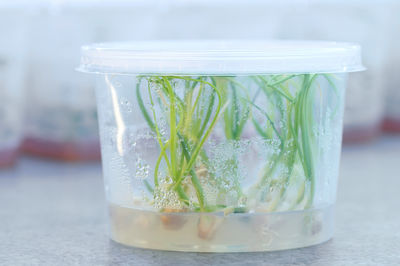
At Lubera Edibles, our Allium young plants are standardly available in our 60-cell trays. With the introduction of this new group of young plants, we will initially offer both Allium young plants in the 'Multi+' quality (biennial/overwintered) and in the 'Multi' quality (annual) in order to be able to meet the demand. For an early and less temperature controlled potting, the Allium young plants of the quality 'Multi+' are suitable as usual because they are not so sensitive to temperature due to...
Read moreYacon young plants for retailers
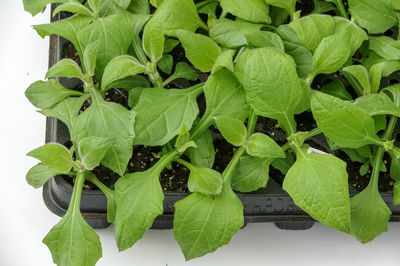
In another article, we have already introduced you to the yacon (Smallanthus sonchifolius) plant group and have also described it in more detail. Now, in this text, learn all about our yacon young plant qualities and how you can produce high-quality pot/container plants for sale/trade from our yacon young plants.
Read moreTree kale young plants – the assortment and production
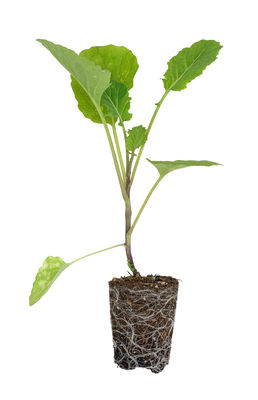
The production of ready-to-sell tree kale plants from the young plants at Lubera Edibles is anything but difficult; you can get tree kale ready for sale or trade in a short time. The strong growth character of tree kale alone ensures that our tree kale young plants develop splendidly shortly after potting and you will have plants ready for sale after about six weeks, especially at cooler production temperatures.
Read moreOca varieties and oca breeding at Lubera Edibles
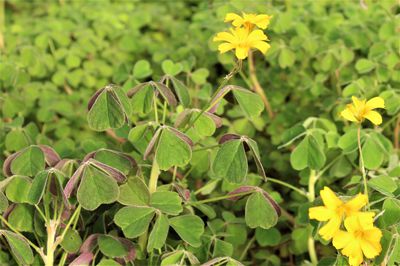
In two separate articles we have presented the new tuberous vegetable species Oca (Oxalis tuberosa) and also the production of young plants for retailers. Here now we will portray the three current varieties in the Lubera Edibles young plant range for professional growers. As with potato and also sweet potato, our sister company Lubera AG is active in the development of new varieties.
Read moreThe production of oca young plants for retailers
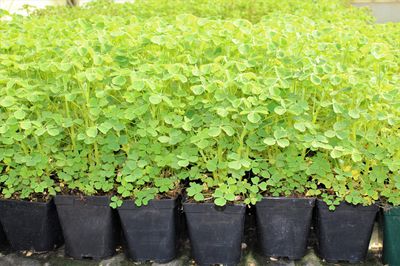
In previous articles we have already described our new tuberous vegetable oca (Oxalis tuberosa) in more detail and also presented our assortment of oca young plants as well as described how our assortment will develop in the future. In this article we would now like to introduce you to our oca young plant quality and show you how you can produce a saleable/tradable plant from this oca young plant.
Read moreThe production of kiwi plants outdoors
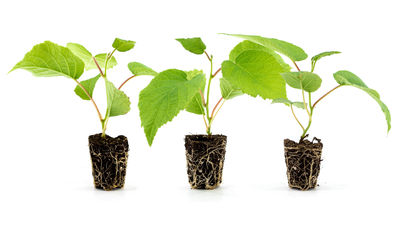
Since kiwi plants are mainly cultivated in protected areas, the title sounds a bit strange at first. However, a coincidence that occurred while producing kiwi plants at our partner company Lubera at the Bad Zwischenahn site has shown that this idea is not as far-fetched as it might seem at first glance.
Read moreLubera breeds potatoes – the most important questions and answers
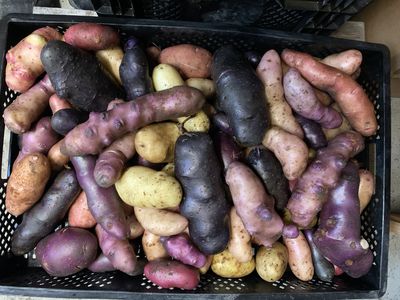
With the expansion of the range of young plants from Lubera Edibles to include vegetables, Lubera also started breeding potatoes a few years ago. How does a simple tree nursery now come up with the idea of breeding potatoes? You are right to ask this question and we will answer the most important questions about our potato breeding project in the following FAQ.
Read moreQuality assurance when propagating young plants – assuring that what has gone in also comes out...

This is true to the motto: "What goes in must come out!" We check the plant authenticity and fruit quality of all larger batches of young plants on a random basis. For this purpose, six randomly chosen young plants from selected young plant batches are potted, cultivated and brought to fruiting. This important “final control” is only one part of our quality assurance.
Read moreRoot power – a look into the future of rhubarb
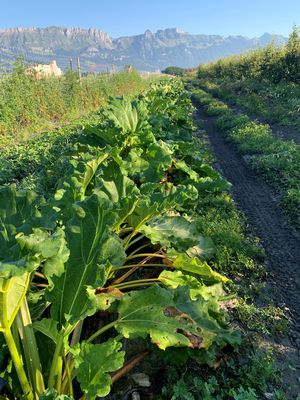
Looking into the future can be little more than looking into a crystal ball. What helps is to look back: rhubarb has a great past and history. There is a lot of future to be expected...not all rhubarb is the same – and a look at our candidate varieties from the Lubera® breeding programme shows what diversity even simple rhubarb is capable of.
Read more(Not) Just Peanuts® – the Lubera peanut assortment at a glance
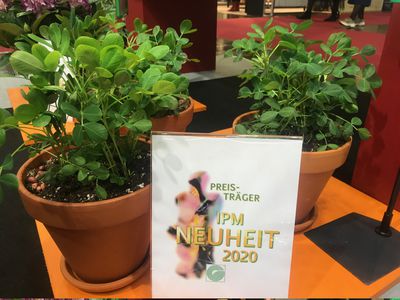
Peanuts: everybody knows them and (almost) everybody has eaten them. What's new is that you can now grow your own peanuts, whether planted directly in your garden or in a container on a balcony or terrace. For this purpose, our sister company Lubera in Switzerland tested South American local breeds in comparison to common cultivars from the United States. The aim was to find a varied assortment of peanuts which are particularly suitable for our changing climate. The following varieties have...
Read more